 W
WIlie Antonescu was a major general of the Romanian Armed Forces during World War II.
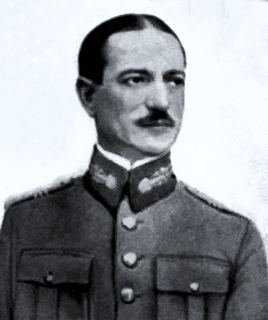 W
WVasile Atanasiu was a Romanian general in World War II.
 W
WAlexandru Averescu was a Romanian marshal and populist politician. A Romanian Armed Forces Commander during World War I, he served as Prime Minister of three separate cabinets. He first rose to prominence during the peasants' revolt of 1907, which he helped repress in violence. Credited with engineering the defense of Moldavia in the 1916–1917 Campaign, he built on his popularity to found and lead the successful People's Party, which he brought to power in 1920–1921, with backing from King Ferdinand I and the National Liberal Party (PNL), and with the notable participation of Constantin Argetoianu and Take Ionescu.
 W
WGheorghe Avramescu was a Romanian Lieutenant General during World War II. In 1945, he was arrested by the Soviets as "pro-German."
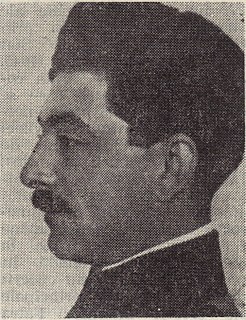 W
WConstantion Bădescu was a Romanian brigadier-general during World War II.
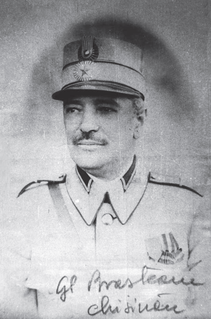 W
WErnest Broșteanu was a Romanian general during World War I.
 W
WMihail Cămărașu was a Romanian lieutenant-general during World War II.
 W
WDumitru Carlaonț was a Romanian major-general during World War II, who is known for being imprisoned and acquitted for war crimes three times. He was the younger brother of General Ioan Carlaonț.
 W
WMarin Ceaușu was a Romanian brigadier-general during World War II.
 W
WHenri Cihoski was a Romanian lieutenant-general during World War I, and Minister of War from 1928 to 1930.
 W
WNicolae Ciupercă was a Romanian general, born in Râmnicu Sărat. He served during World War I and World War II under the Command of Alexandru Averescu and then Ion Antonescu, but would retire from a military life in 1941 over strategy disagreements with Antonescu. He also served as Minister of National Defense in 1938–1939.
 W
WConstantin Constantinescu-Claps was a Romanian general during World War II, in command of the Romanian Fourth Army at the Battle of Stalingrad.
 W
WEmil Constantinescu (Romanian pronunciation: [eˈmil konstantiˈnesku] is a Romanian professor and politician, who served as the President of Romania, from 1996 to 2000.
 W
WMajor Nicolae Dabija, knight of Order of Michael the Brave, was an officer of the Romanian Royal Army and a member of the anticommunist armed resistance in Romania. He was the leader of the resistance group The National Defense Front–The Haiduc Corps.
 W
WDumitru Dămăceanu was a Romanian army officer in World War II, later promoted to brigadier-general, who played a predominant role in the royal coup of August 23, 1944.
 W
WNicolae Dăscălescu was a Romanian general during World War II.
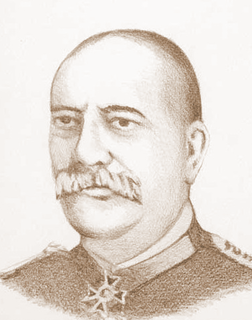 W
WCleante Davidoglu (1871–1947) was a Romanian major general during World War I and its immediate aftermath, who served as commander of the Gendarmerie from 1927 to 1928.
 W
WVice Admiral Richard Bell Davies,, also known as Richard Bell-Davies, was a senior Royal Navy commander, naval aviator, and a First World War recipient of the Victoria Cross, the highest award for gallantry in the face of the enemy that can be awarded to British and Commonwealth forces.
 W
WAlexandru A. Dobriceanu was an officer in the Romanian Army who fought in both World War I and World War II, and rose to the rank of major general afterwards.
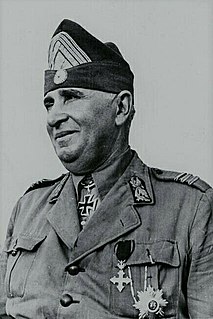 W
WCorneliu Dragalina was a Romanian lieutenant general during World War II.
 W
WIon Dragalina was a Romanian general, who died during the World War I in the First Battle of the Jiu Valley. Dragalina was born in the city of Karansebesch, which at the time was part of the Austrian Empire.
 W
WPetre Dumitrescu was a Romanian general during World War II who led the Romanian Third Army on its campaign against the Red Army in the eastern front.
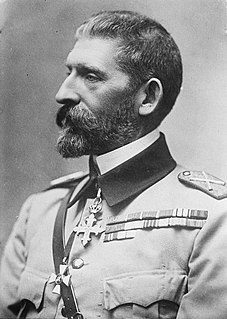 W
WFerdinand, nicknamed Întregitorul, was King of Romania from 1914 until 1927. Although a member of the Swabian branch of Germany's ruling House of Hohenzollern, Ferdinand sided against the Central Powers in World War I. Thus, at the war's end, Romania emerged as a much-enlarged kingdom, including Bessarabia, Bukovina and Transylvania, and Ferdinand was crowned king of "Greater Romania" in a grand ceremony in 1922. He died from cancer in 1927, succeeded by his grandson Michael under a regency.
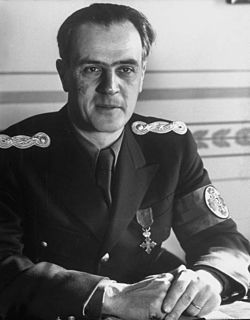 W
WGrigore Gafencu was a Romanian politician, diplomat and journalist.
 W
WConstantin Iancovescu (1862–1945) was a Romanian politician and general.
 W
WAlexandru Ioanițiu was a Romanian major general.
 W
WEmanoil Ionescu was a Romanian General during World War II and commander of the Romanian Air Force's Corpul I Aerian.
 W
WHoria Macellariu was a Romanian rear admiral, commander of the Royal Romanian Navy's Black Sea Fleet during the Second World War.
 W
WNicolae Macici was a Romanian lieutenant general during World War II.
 W
WGheorghe Manoliu was a Romanian General during World War II.
 W
WGheorghe D. Mărdărescu was a Romanian army major general during World War I and a commander during the Hungarian–Romanian War. He was Romanian Minister of War from 20 April 1922 to 29 March 1926.
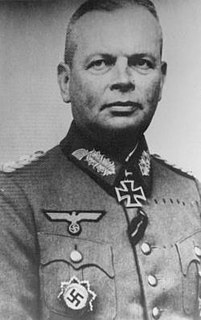 W
WFranz Mattenklott was a German general in the Wehrmacht of Nazi Germany during World War II. He was a recipient of the Knight's Cross of the Iron Cross.
 W
WGheorghe Mihail was a Romanian career army officer.
 W
WLeonard Mociulschi was a Romanian Major General of Polish origin during World War II.
 W
WTraian Moșoiu was a Romanian general during World War I and the Hungarian–Romanian War. He held the posts of Minister of War in the Alexandru Vaida-Voevod cabinet, Minister of Communications and of Industry and Commerce in the Ion I. C. Brătianu cabinet.
 W
WPrince Nicholas of Romania, later known as Prince Nicholas of Hohenzollern-Sigmaringen, was the fourth child and second son of King Ferdinand I of Romania and his wife Queen Marie.
 W
WConstantin D. Nicolescu was a Romanian career army officer.
 W
WHelmuth von Pannwitz was a German general who was a cavalry officer during the First and the Second World Wars. Later he became Lieutenant General of the Wehrmacht and of the Waffen-SS, SS-Obergruppenführer, and Supreme Ataman of the XV SS Cossack Cavalry Corps. In 1947 he was tried for war crimes under Ukase 43 by the Military Collegium of the Supreme Court of the Soviet Union, sentenced to death on 16 January 1947 and executed in Lefortovo Prison the same day. He was rehabilitated by a military prosecutor in Moscow in April 1996. In June 2001, however, the reversal of the conviction of Pannwitz was overturned and his conviction was reinstated.
 W
WJózef Klemens Piłsudski was a Polish statesman who served as the Chief of State (1918–1922) and First Marshal of Poland. He was considered the de facto leader (1926–35) of the Second Polish Republic as the Minister of Military Affairs. After World War I, he held great power in Polish politics and was a distinguished figure on the international scene. He is viewed as a father of the Second Polish Republic re-established in 1918, 123 years after the final Partition of Poland by Austria, Prussia and Russia in 1795.
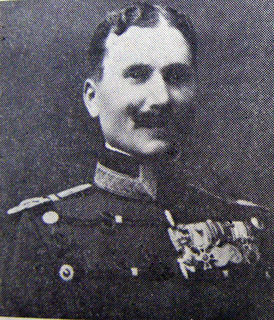 W
WDavid Praporgescu was a Romanian brigadier general during World War I, who was killed in action at the start of the Battle of the Southern Carpathians.
 W
WConstantin Prezan was a Romanian general during World War I and a Marshal of Romania afterward.
 W
WIoan Mihail Racoviță was a Romanian general during World War II, and Minister of Defense in the aftermath of King Michael's Coup of August 1944.
 W
WNicolae Rădescu was a Romanian army officer and political figure. He was the last pre-communist rule Prime Minister of Romania, serving from 7 December 1944 to 1 March 1945.
 W
WAlexander Frantsevich Ragoza, in Ukrainian Rogoza, was a Minister of Defense of the Ukrainian State. He was also a general of the infantry in the Imperial Russian Army who saw service during World War I.
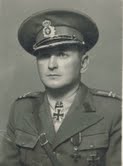 W
WGheorghe Răscănescu was a Romanian officer during World War II. He was born in Crăcăoani, Neamţ County. He was a recipient of the Knight's Cross of the Iron Cross of Nazi Germany for his actions at Stalingrad. Sentenced to 10 years for “trying to overthrow the political order”; released from prison in 1962.
 W
WWolfram Karl Ludwig Moritz Hermann Freiherr von Richthofen was a German fighter pilot during World War I and rose to the rank of field marshal in the Luftwaffe during World War II.
 W
WRadu R. Rosetti was a Romanian brigadier general, military historian, librarian, and a titular member of the Romanian Academy.
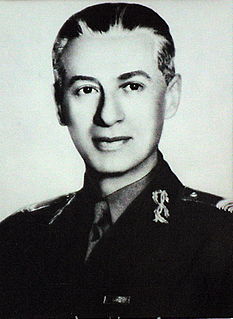 W
WConstantin Sănătescu was a Romanian general and statesman who served as the 44th Prime Minister of Romania after the 23 August 1944 coup, through which Romania left the Axis Powers and joined the Allies.
 W
WAlexandru "Alecu" Șerbănescu was a leading Romanian fighter pilot and flying ace in World War II.
 W
WIlie Șteflea was a Romanian General during World War II and Chief of the Romanian General Staff between 20 January 1942 and 23 August 1944.
 W
WKarl Strecker was a German general during World War II who commanded several army corps on the Eastern Front. A career military and police professional, he fought in World War I and then served in the paramilitary Security Police of the Weimar Republic. Strecker welcomed the rise of Hitler and found favor with the regime, earning rapid promotions in the armed forces of Nazi Germany, the Wehrmacht. Strecker commanded the German Army's XI Army Corps in the Battle of Stalingrad and was the last German general to surrender his command in the city. He spent twelve years in Soviet captivity before being released in 1955.
 W
WCorneliu Teodorini was a Romanian general during World War II. He was a recipient of the Knight's Cross of the Iron Cross with Oak Leaves.
 W
WJosip Broz, commonly known as Tito, was a Yugoslav communist revolutionary and statesman, serving in various roles from 1943 until his death in 1980. During World War II, he was the leader of the Partisans, often regarded as the most effective resistance movement in occupied Europe. He also served as the President of the Socialist Federal Republic of Yugoslavia from 14 January 1953 to 4 May 1980.
 W
WWalter Warlimont was a German staff officer during World War II. He served as deputy chief of the Operations Staff, one of departments in the Oberkommando der Wehrmacht (OKW), the Armed Forces High Command. Following the war, Warlimont was convicted in the High Command Trial and sentenced to life imprisonment as a war criminal. He was released in 1954.
 W
WOtto Wöhler was a German general in the Wehrmacht and a war criminal during World War II. He rose to a corps and army level commander.